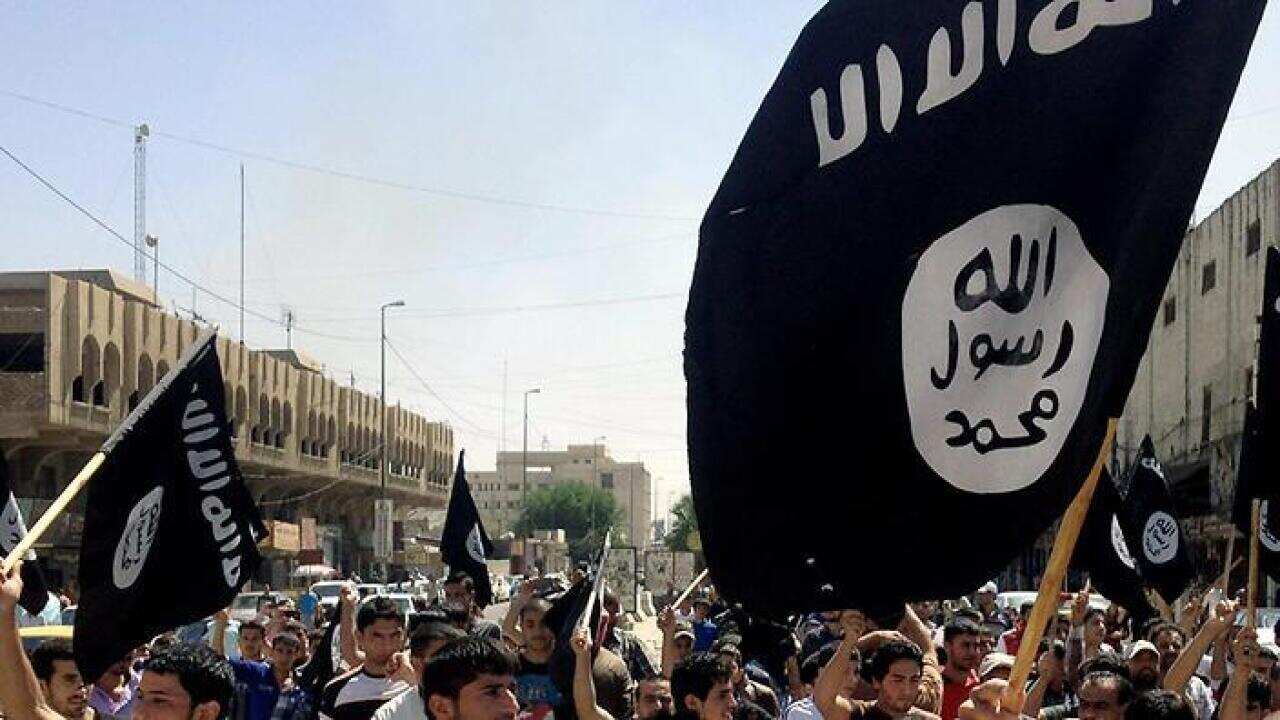A report by a United States security consultancy claims that IS militants generate up to AU$110 million a month through oil sales and taxation.
The analysis by IHS Global Strategies is based on data found on social media and what it calls "open source intelligence" gathered by its monthy conflict monitor.
"The majority of [the funding], around 50 per cent, comes from taxation and confiscation, while around 43 per cent comes from oil revenue," the IHS said in a statement. "Drug smuggling, the sale of electricity and donations make up the remainder."
The report said IS controls several areas in Syria and western Iraq where they tax residents up to 20 per cent on basic services like electricity, mobile phone coverage and internet access.
Understanding how IS makes and spends its money is playing a crucial role in the ongoing campaign to defeat the organisation.
In a statement, senior IHS analyst Columb Strack said that unlike al-Qaeda, IS "has not been dependent on money from foreign donors, to avoid leaving it vulnerable to their influence."
"Our analysis indicates that the value of external donations to the Islamic State is minimal, compared with other revenue sources."
Oil smuggling
In recent weeks Russia has accused Turkish President Recep Tayyip Erdogan and his family of directly benefitting from the illegal smuggling of oil from IS held territories.
While he hasn't attacked President Erdogan personally, Iraq's Prime Minister Haider al- Abadi has accused Turkey of being the main conduit for IS oil smuggling operations.
"We hope for international support to prevent terrorists entering Syria and Iraq and to stop Daesh smuggling of petrol among other things, including Iraqi antiquities," he said. "Most of this smuggling, including that of terrorists, frankly happens via Turkey."
But the IHS report also noted that airstrikes have significantly degraded IS's ability to both refine and transport oil.
It said the group is still producing oil, but Turkish efforts to stop the smuggling, along with several battlefield defeats, mean IS has been forced to rely on local markets in Syria and Iraq.
US jets have targeted and destroyed several hundred oil smuggling trucks in recent weeks.
"We've seen a significant increase in the tempo of our strikes over the past couple of weeks," said Joseph Dunford, the Chairman of the US Joint Chiefs of Staff. "We estimate that approximately 43 per cent of the revenue stream ISIL derives from oil has been affected over the past 30 days."
But questions remain over why it took the US so long to target the trucks specifically.
US state department spokesperon John Kirby said while the focus has always been on finding ways to cut off IS revenue streams, several other factors need to be considered as well.
"It's not like we've never been focused on their oil revenue, it's something we've constantly focused on," he said. "When you do that, just like every other set of targets you try to strike you have to be mindful of collateral damage, you have to be mindful of the infrastructure you're hitting and the degree in which it should be or should not be preserved.
"This is a very dynamic, fluid situation. This is an adaptive enemy, he's agile and very determied. We have to be agile and adaptive as well, and we are."
Mr Kirby once again dismissed Russia's accusations that the Turkish government is profiting off IS oil smuggling.
But Richard Becker from the Answer Coalition protest group told Russia Today that the US appears reluctant to discuss its relationship with Turkey in detail.
"These are not small scale operations that are being carried out, these aren't smugglers with donkeys going over mountain passes or anything like that," he said. "This is a huge operation that's going on.
"The United States is very protective about its relationship with Turkey, but at the same time in recent weeks it's become more apparent that this is going on and the United States claims it's fighting ISIS."
Financial difficulty
While IS has managed to secure a steady stream of funding, the IHS report claims there are signs of financial strain.
The security firm's conflict monitor shows IS is spending almost as much as it's making amid reports of cuts to fighters' salaries and the introduction of new agricultural taxes.
This report comes just months after a similar investigation by the Financial Times claimed IS made over $2 million a day through oil.
While credible, the investigations' results are almost impossible to verify.
Share

